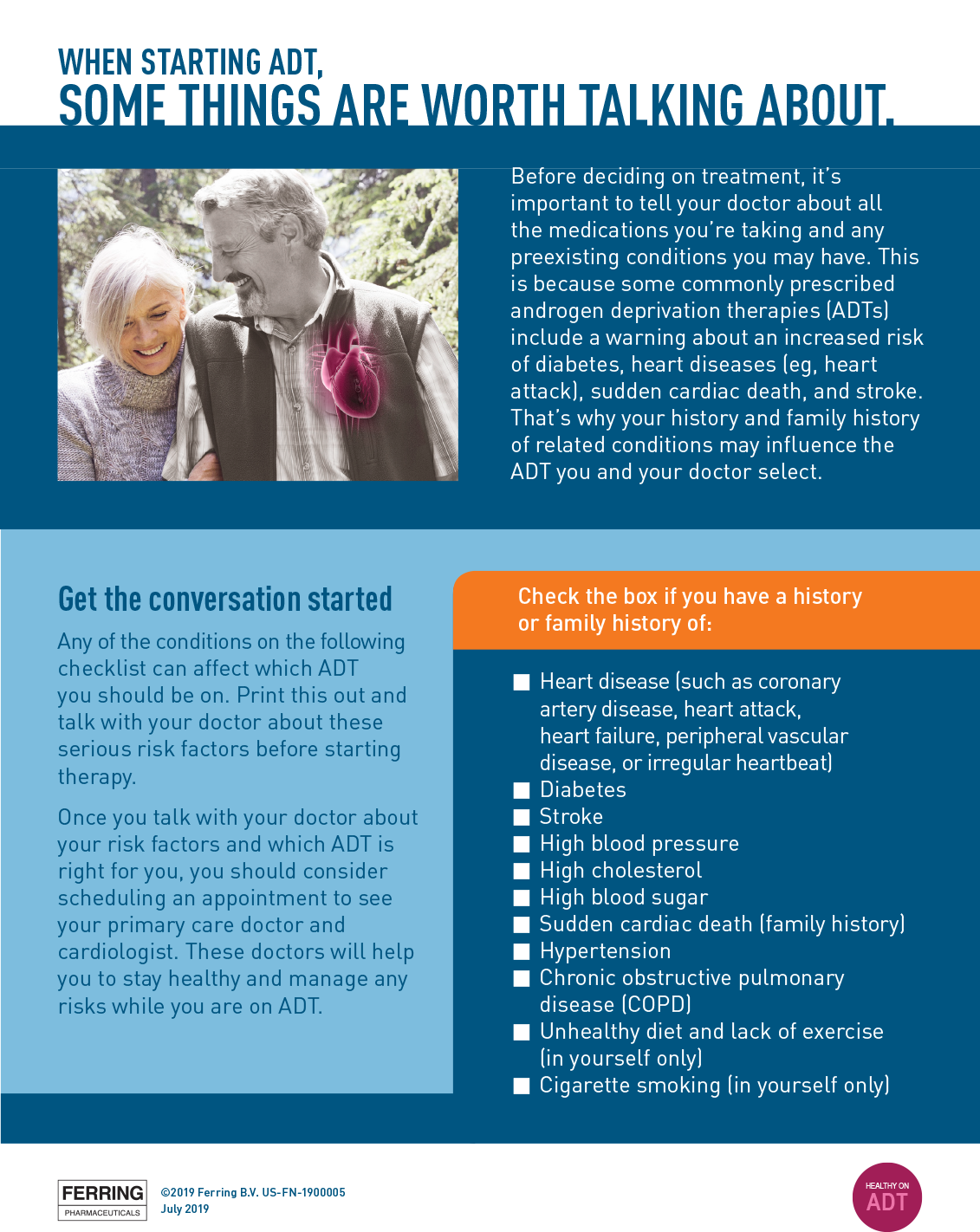
A brief overview of your Advanced Prostate Cancer (APC) diagnosis
About APC

A Brief Overview of Advanced Prostate Cancer
What does an advanced prostate cancer (APC) diagnosis mean? What treatments are available? What is androgen deprivation therapy?

ADT: Frequently Asked Questions
Find answers to some of the more commonly asked androgen deprivation therapy (ADT) related questions.

Risks Associated With ADT Treatment
There are some risks associated with all androgen deprivation therapy (ADT) treatments. Here are some topics to discuss with your healthcare team.

DISCUSSING HEART HEALTH, DIABETES, AND OTHER KEY RISK FACTORS WITH YOUR DOCTOR
Some ADTs carry an increased risk for cardiovascular (heart) problems and diabetes. If you have a personal or family history of either, there are important questions you need to ask your doctor because it could affect which ADT you should be on.
Our Doctor Discussion Guide helps you get the most out of your conversation by helping you ask informed, relevant questions about prostate cancer, other health issues you may have, and how they can affect your choice of ADT.
Download and print the guide now and be prepared to fight your disease with knowledge as well as the ADT that’s right for you.
